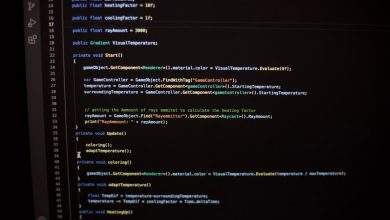
What is a tech equity collective?
In a world where technology powers almost every aspect of life, from how we communicate to how we learn and work, the issue of equitable access has grown more critical than ever. A tech equity collective is a collaborative group or initiative that exists to address and reduce inequity in technology access, education, and opportunity. These collectives work toward a future where everyone—regardless of race, gender, socioeconomic status, or geographic location—can participate in and benefit from the innovations of the digital age.
At their core, tech equity collectives are about bridging the digital divide. With fast-paced advancements in AI, software development, and data science, the risk of leaving certain communities behind only increases. These collectives aim to ensure that underrepresented individuals and communities have not only access to technology but also the knowledge and economic mobility that come with it.
[ai-img]diverse teamwork, technology, empowerment[/ai-img]What Does a Tech Equity Collective Do?
The term “tech equity collective” might vary from one organization to another, but they usually engage in several common activities, including:
- Digital Literacy Programs: Offering classes and workshops to teach basic to advanced tech skills.
- Career Pathway Support: Providing training, mentoring, and job placement assistance in tech fields.
- Community Outreach: Engaging underserved communities through education and resource sharing.
- Advocacy: Influencing policy in schools, companies, and government to promote fair access to technology.
- Research and Data Collection: Studying the digital divide to better understand its causes and potential solutions.
Whether it’s supplying laptops to students in low-income areas or creating coding bootcamps for marginalized groups, these collectives are united by their mission: leveling the technological playing field.
Why Are Tech Equity Collectives Important?
Technology has transformed the job market, education systems, healthcare, and even civic participation. Yet, millions still lack internet access or the devices and skills needed to take advantage of these changes. Without intentional action, the tech revolution can exacerbate inequities rather than resolve them.
Tech equity collectives champion the idea that tech should be a tool for social progress—not division. They focus on systemic change, pushing for long-term solutions rather than temporary fixes.
Key reasons why these collectives matter:
- Economic opportunity: They provide skills that open doors to high-paying and sustainable jobs.
- Diversity in tech: Increasing representation in technology fields drives innovation and inclusiveness.
- Civic engagement: Empowered individuals can better participate in digital democracy.
- Educational equity: Access to digital tools improves learning outcomes for all students.
Examples of Tech Equity in Action
Some well-known initiatives and collectives are already making waves:
- Black Girls Code: Teaches young Black girls computer programming skills.
- CodePath: Focuses on increasing diversity in computer science education.
- TechEquity Collaborative: A policy-driven organization that advocates for more equitable technological growth.
These are just a few among many efforts turning the abstract idea of equity into tangible progress.
[ai-img]coding workshop, laptops, diverse group[/ai-img]How Can You Get Involved?
Regardless of your background, there are multiple ways to support or join a tech equity collective:
- Volunteer: Share your tech expertise or time through mentoring and training programs.
- Donate: Financial support helps fund laptops, internet access, and educational materials.
- Partner: Organizations can collaborate by offering internships or workshop space.
- Advocate: Use your voice to support equitable technology policies in your community and workplace.
Looking Toward an Equitable Future
The pursuit of tech equity is not just a noble goal—it’s a necessity. As our society becomes more digitally integrated, leaving parts of the population behind is not just morally irresponsible, it’s economically inefficient. Tech equity collectives represent a grassroots and often global response to this challenge. By working collaboratively, these groups are helping build a future where everyone has the power to shape and share in our digital world.
In the end, technology should be an equalizer, not a divider. Tech equity collectives are making that vision a reality.



